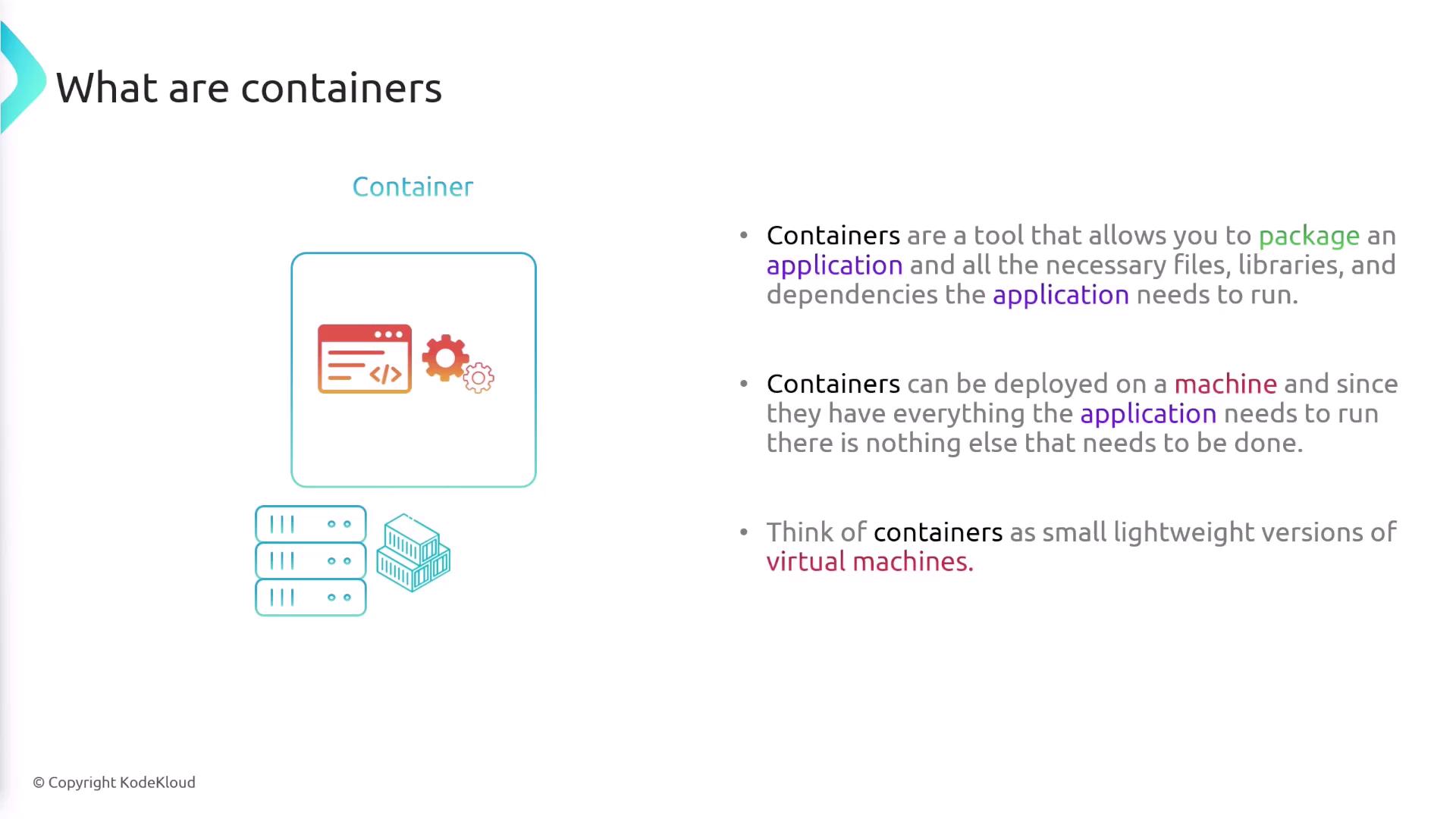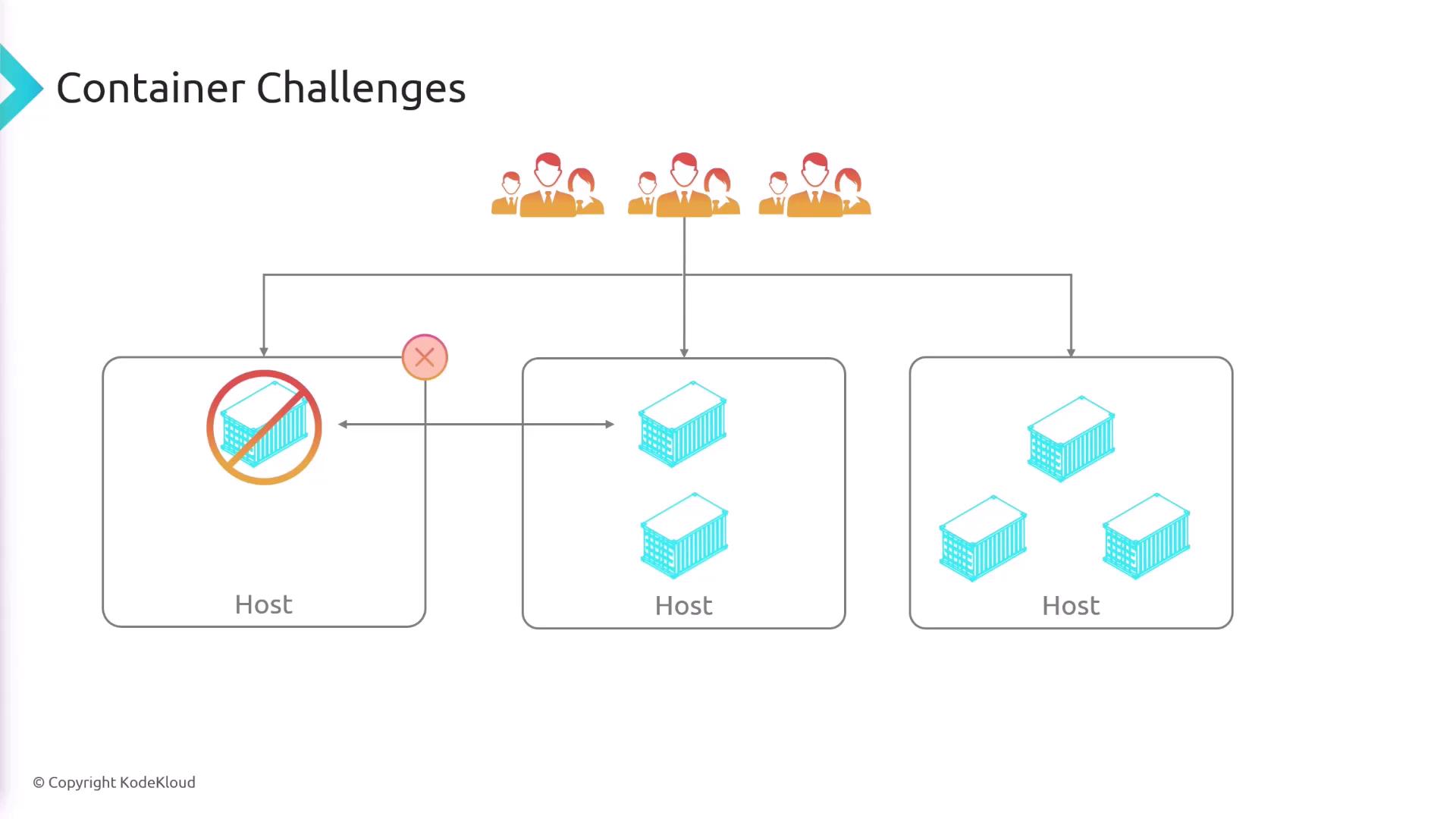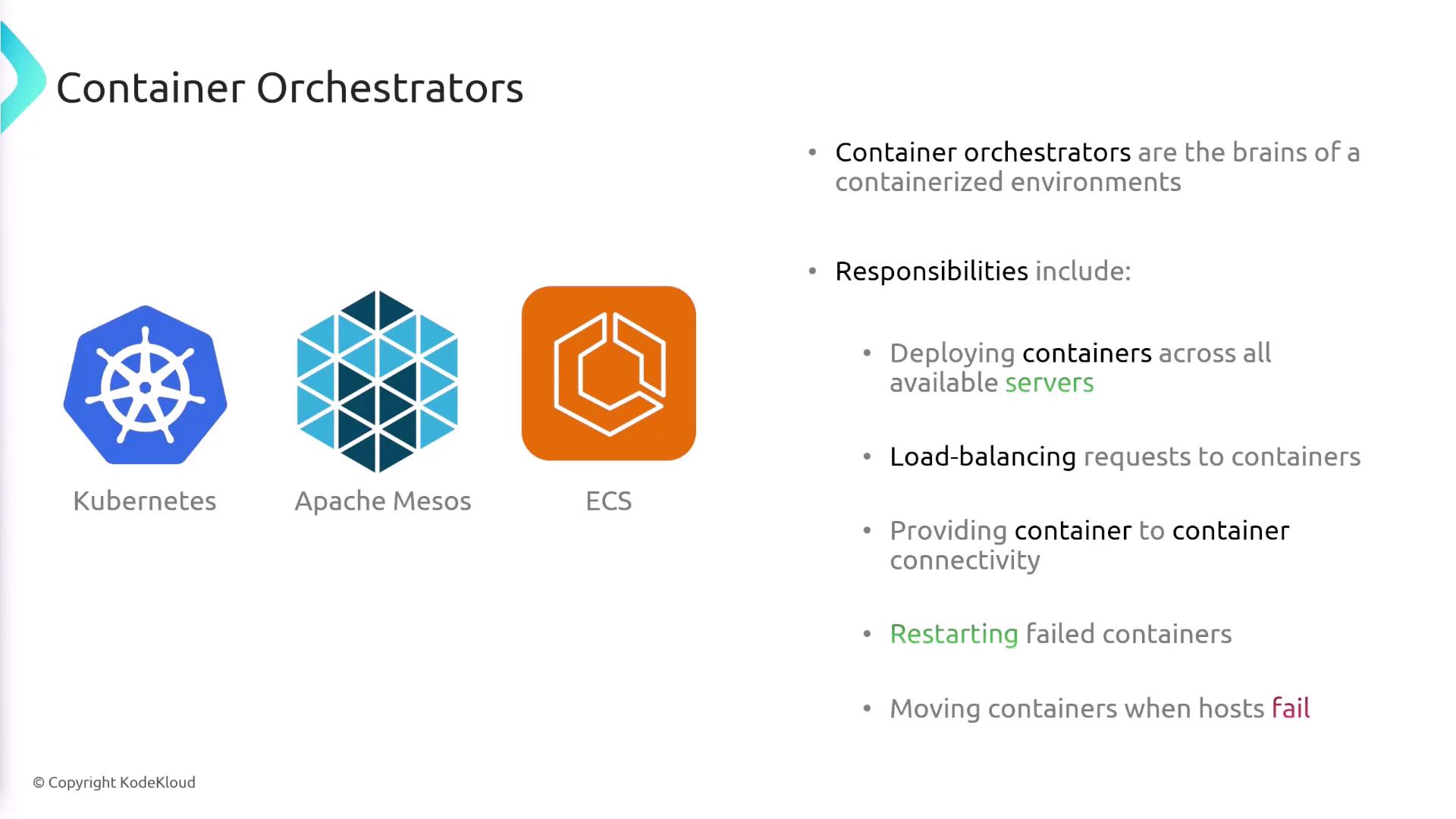AWS Certified Developer - Associate
Containers on AWS
Containers Overview
In this lesson, we explore containers and the AWS services that help deploy and manage containerized applications. Containers package an application along with all its required code, libraries, and dependencies, ensuring seamless deployment across any environment without additional configuration. Essentially, containers are lightweight versions of virtual machines.

Deploying applications using containers introduces challenges similar to traditional deployments. For instance, hosting an application on a single physical machine can create a single point of failure. To ensure reliability, applications must be distributed across multiple servers, and user traffic should be load balanced across all container instances.
Containerized applications often comprise multiple components and services distributed across different hosts, subnets, or even data centers. As a result, establishing robust networking between containers is essential. Automated monitoring is equally important—if a container fails, an automated system should restart it. In the event of an entire host failure, containers must be redeployed to guarantee continuous service.
During periods of high traffic, systems should automatically scale container instances up or down based on demand.

Key Challenges with Containers
- Distribution: Applications must be segmented across multiple servers to prevent single points of failure.
- Load Balancing: User traffic needs to be evenly distributed across container instances.
- Networking: Secure and reliable container-to-container communication is critical.
- Monitoring and Recovery: Automated systems must detect failures, restart containers, and recover from host failures.
- Scaling: The system should adjust container instances dynamically in response to changing traffic.
These challenges lead to the necessity of a container orchestrator—an intelligent system that automates container deployment, scaling, networking, and recovery. Container orchestrators are essentially the control center of a containerized environment. Their primary responsibilities include:
- Deploying containers across all available servers.
- Load balancing traffic among containers.
- Facilitating connectivity between containers.
- Restarting containers that have failed.
- Relocating containers if a host goes down.
Several container orchestrators are available, such as Kubernetes (a popular open source option), Apache Mesos, and AWS-specific services like Amazon ECS.

In the following sections, we will delve deeper into the container ecosystem, examining various features, services, and supporting technologies like managed container registries for storing container images.
For more insights on container deployment and orchestration, explore additional resources:
Feel free to refer to our documentation as you build scalable, resilient containerized applications.
Watch Video
Watch video content